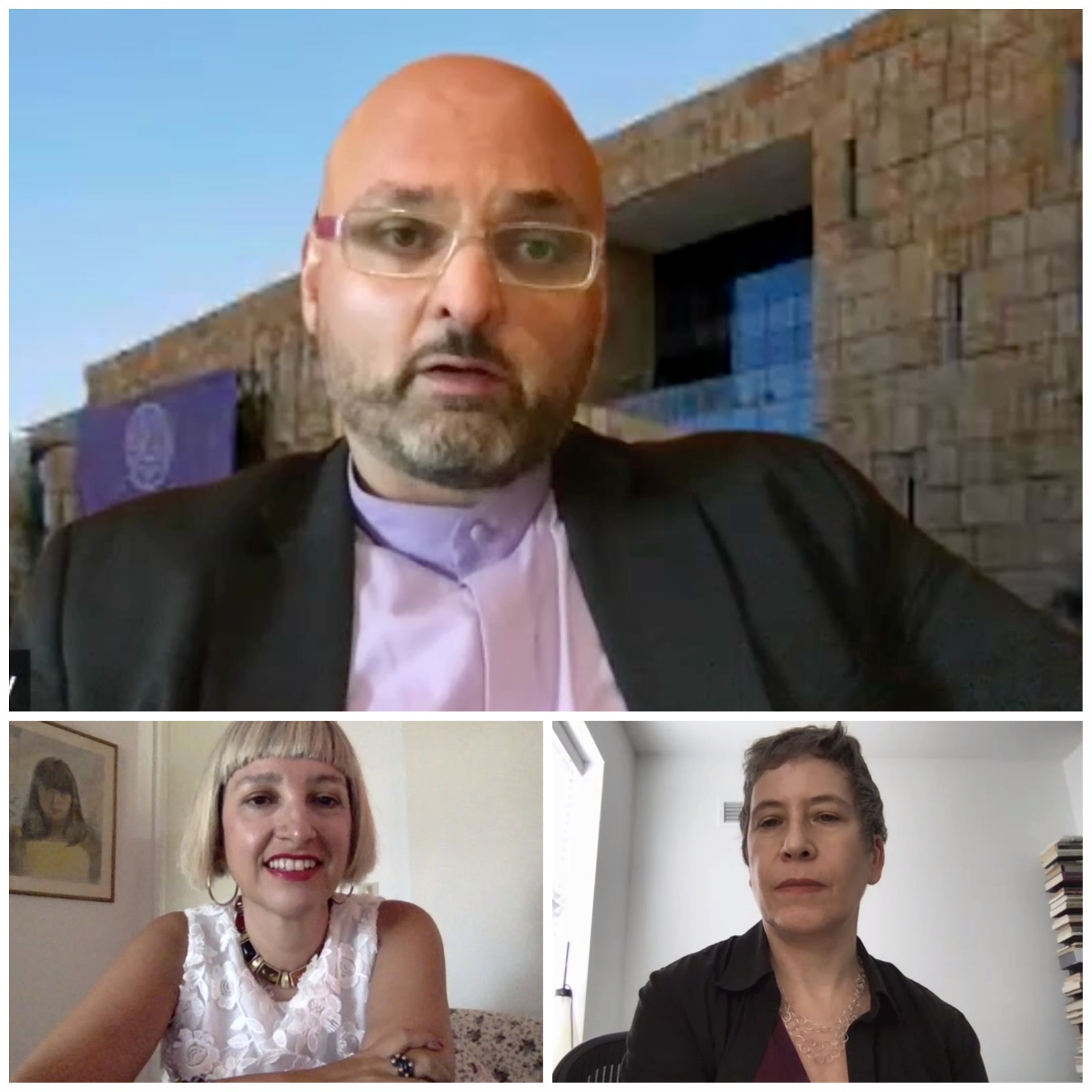Academic publishing during a pandemic and a preview of Dean Marwan M. Kraidy’s strategic priorities for Northwestern Qatar are two of the topics that were covered in this year's Colloquium, an annual event for faculty and staff. The event also highlighted the research and creative output of the University’s faculty.
Dean Kraidy outlined his four strategic priorities for this year. The first of these, he said, is to “reposition the institution as a scholarly community that is involved in the production of original knowledge and storytelling of all kinds.”
Due to the global move to online learning, a transition Kraidy believes is accelerated but not ignited by COVID-19, Northwestern Qatar is able to continue distinguishing itself in this online environment by “focusing on what we do best, taking advantage of our location, and becoming more visible as a node for creating new knowledge and new stories.”
The importance of shared governance was the subject of Kraidy’s second strategic priority, which he defined as a “self-governing faculty that abide by a set of academic values and professional norms that are then translated into processes and procedures that are both clearly spelled out and equitable.” His third priority, relates to “faculty hiring, nurturing, promotion, and retention,” which he said is “a fundamental aspect of everything that we do and has to correspond to our mission.” The fourth and final priority addressed “a program and agenda of research where everybody becomes known for a few fundamental questions and a variety of studies around them.”
The colloquium also included a keynote panel on “Academic Research During a Pandemic,” which featured insights from Mary C. Francis, director of the University of Pennsylvania Press, and Zizi Papacharissi, professor of Political Science and head of the Communication Department at the University of Illinois-Chicago.
Providing an overview of a publishing industry disrupted by a global pandemic, Francis noted “something of a contraction in scholarly publishing,” the implications of which are seen in journals and publishers getting smaller and being forced to focus on their strengths, though she said these outlets are unlikely to disappear completely. Two other derivatives from the impact of COVID-19 according to Francis manifest in the “sharp turn toward digital delivery for books” and the “notable inequalities and lags in submission that divide along gender lines.”
For her part, Papacharissi reflected on her experience as a journal editor, drawing on major trends she believes have made a difference in the past two years. These included open access, online publishing, the uneasy division between books and articles in the field and its relationship to tenure, and the peer-review system and its areas of improvement.
The colloquium concluded with a session highlighting Northwestern Qatar’s “Faculty Research and Creative Activities.” Moderated by Professor Kathleen Hewett-Smith, the session highlighted a new book on the Tijaniyya Sufi order by Professor Zachary Wright, a film about the implications of the war in Syria by Professor Rana Kazkaz, and another book on the use of data journalism in the Global South by Professor Eddy Borges-Rey.
Borges-Rey discussed how the idea for his book, co-authored by journalism scholars Saba Bebawi and Bruce Mutsvairo, brought together researchers interested in how data journalism operated in places other than the “usual suspects” in the Western world. By shifting the lens to lesser-known active players in Africa, Oceania, Latin America, and the Middle East, the project allows members of the Global South to have “a voice on the different issues emerging from their respective regions and continents.”
Kazkaz explained how the feeling of living in “relative freedom, knowing that my fellow Syrians are not,” was the impetus that “fueled the spirit behind my desire to write and direct the film The Translator. Halting production in Syria in 2011 due to the eruption of the Syrian civil war, the film, released nine years later, is both personal and political for Kazkaz. “I make fiction because it helps me process my reality and connects me to humanity,” she said.
In introducing his book, Wright pointed out that the Tijaniyya, despite being the only major global Islamic network with “an unapologetic Black African leadership,” lacks an “equitable and foundational study” within academic circles. Arguing that this is the result of “a lingering anti-Black prejudice in Islamic studies and Islamophobic sentiment leftover from Christian missionary activity in Black Africa,” Wright explained that his book Realizing Islam sets out to revisit the intellectual foundations of Africa’s most popular Sufi order.
Northwestern Qatar begins its academic year with a new dean and the largest incoming class in its history. A ceremony inducting the new class is scheduled for August 23rd when classes begin at the University.

